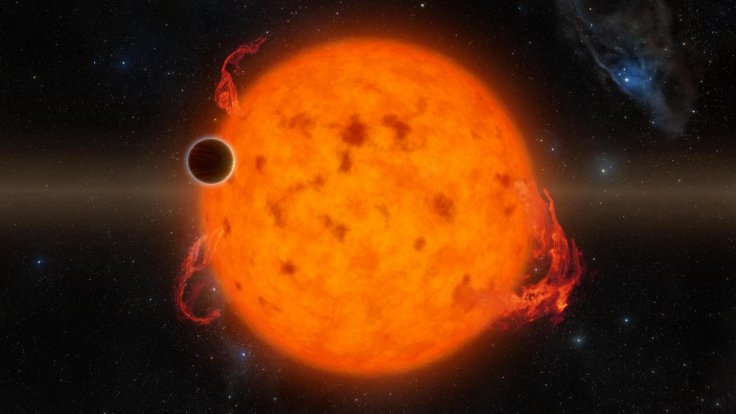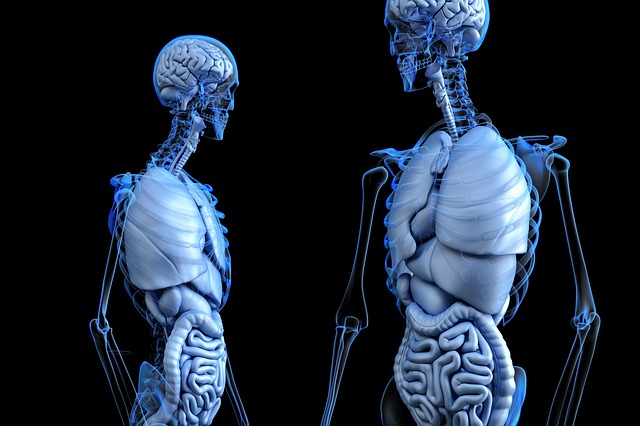The year 2019 had no dearth of scientific research and studies that spanned across various disciplines. While some provided new insights into the understanding of the universe, some stressed the worrying rates at which climate change is affecting the planet.
We bring to you a few of them that stood out across the following disciplines this year.
Technology
AI helps in detection of Acute Myeloid Leukemia(AML)
A study by researchers from the German Center for Neurodegenerative Diseases (DZNE) and the University of Bonn, showed that Artificial Intelligence(AI) was capable of detecting one of the most common forms of cancer—acute myeloid leukemia.
The neural network was able to study and learn the activity of Transcriptomes—fingerprints of genetic activity within cells—and discern with high accuracy the difference between blood samples with AML and healthy ones. This opens doors for supporting traditional diagnostics and enabling a reduction in costs, where a simple blood test can reveal the presence of AML in a blood sample. If this method sees practical application, it can aid conventional diagnostics and improve timely detection.

AI and breast cancer
Another study by researchers from the Karolinska Institute in Stockholm, Sweden, highlighted the role AI could play in the detection of breast cancer in the future. Trained using mammograms from thousands of patients, the deep neural network was able to pick out mammograms of patients who were later diagnosed with breast cancer. The AI also showed a low false-negative rate—the rate at which women developed breast cancer later, after having not been categorized as high-risk.
AI helped in the diagnosis of Crohn's disease
AI also proved capable of helping in the diagnosis of Crohn's disease, a digestive ailment that afflicts people for life. A study provided promising results by being able to use Machine Learning (ML) algorithms to reveal unknown genes associated with the disease heretofore, and precisely predicting whether thousands of patients had the condition. The scientists employed, AVA, Dx (Analysis of Variation for Association with Disease)— a machine learning method—to reveal previously unknown genes and their role in Crohn's—and expressed hope for improvement in the method.
Space
Second black hole
As 2019 bore witness to the first images of a black hole, there were a few more that were discovered. A study claimed that a second black hole could be present in the Milky Way galaxy and could be 100,000 times that mass of the Sun.
While studying a star known as S0-2—which orbits Sagittarius A*, Milky Way's massive black hole every 16 years—they noticed that there was a slight deviation in S0-2's orbit. This led them to believe that it was under the influence of another black hole close by.

Exoplanet
While there were various discoveries and studies related to exoplanets, a study by researchers from Caltech announced the discovery of an exoplanet that was like 'no other' ever discovered. Named Planet HR 5183 b', it is said to be three times the mass of Jupiter. Orbiting its star in an egg-shaped orbit, it completes an orbit in 45-100 years. It was considered to be different from other exoplanets discovered due to its elongated orbit.
Milky Way is warped and twisted, says study
With regards to the very galaxy that our planet resides in, the Milky Way, a study by the University of Warsaw dispelled a long-held notion that the galaxy was shaped like a disk. The study added to the mounting evidence that the Milky Way was warped and twisted, and not a disk. The results of the study could help discover dark matter and understand in-depth details about neighbouring galaxies.
Environment
The ice sheet in Greenland, Antarctica melting faster
The primary focus of many studies related to the environment was on climate change, especially its impact on the melting ice caps across the planet. A series of studies found that the ice sheet in Greenland and Antarctica was melting a lot faster than it was believed to be earlier.
These studies highlighted the alarming rate at which Greenland has been losing its ice cover and how it affected the global sea levels—a loss of 4.2 trillion tons of ice in the last 25 years which has led to an increase of 0.4 inches in the global sea level. Another concerning finding was that the heat in certain months led to the loss of 55 billion tons of ice in only five days.

Arctic regions warming up
While quite a few pieces of research illustrate the loss of ice in the Antarctic region, few speak about the Arctic. A study published in November drew attention to the precarious situation in the Arctic region. It said that the region is warming up at a brisk rate with unavoidable global ramifications due to it. Authored by a team of experts from various disciplines, the study stated that a rise of 0.75C at the Arctic was observed in the past ten years. Highlighting the seriousness of the situation, the authors pointed out that while the earth as a whole may take up to 40 years to reach the accepted 2C mark, the Arctic regions have reached the 7C mark during certain months of the year.
Health
Consuming supplements during chemo can raise the risk of relapse, death in women
This was a good year for cancer research, with new studies providing deeper insights into the disease and its various forms. A study by researchers from the University of Buffalo suggested that consuming certain supplements during chemotherapy can raise the risk of relapse and death in women.
According to the researchers, the effectiveness of chemotherapy seemed to reduce due to the intake of dietary supplements that raise the level of antioxidants, omega-3 fatty, vitamin B12, and iron. This legitimized that long given advice by doctors to chemotherapy patients—do not consume antioxidant supplements during treatment.

Vaccine for Pancreatic cancer
Pancreatic cancer often reveals itself in patients only after significantly ravaging the body, and requires surgical removal of the pancreas followed by the radiation and chemotherapy. However, a study by scientists from Queen Mary University of London and Zhengzhou University in China presented a novel way of dealing with the disease: a vaccine. The vaccine tested on mice designed to have pancreatic cancer showed promising results of delayed progression of the disease, and prolonged survival in them.
It is possible to catch Alzheimer's early
Paving the way for the treatment of another crippling disease, Alzheimer's, a study revealed that the human body does not age in one continuous cycle, and shifts gears at three points in an individual's life—34, 60, and 78 years of age. The study was of significance as it helped shape the idea the timely interventions can be made based on the aging of the body to tackle Alzheimer's.









